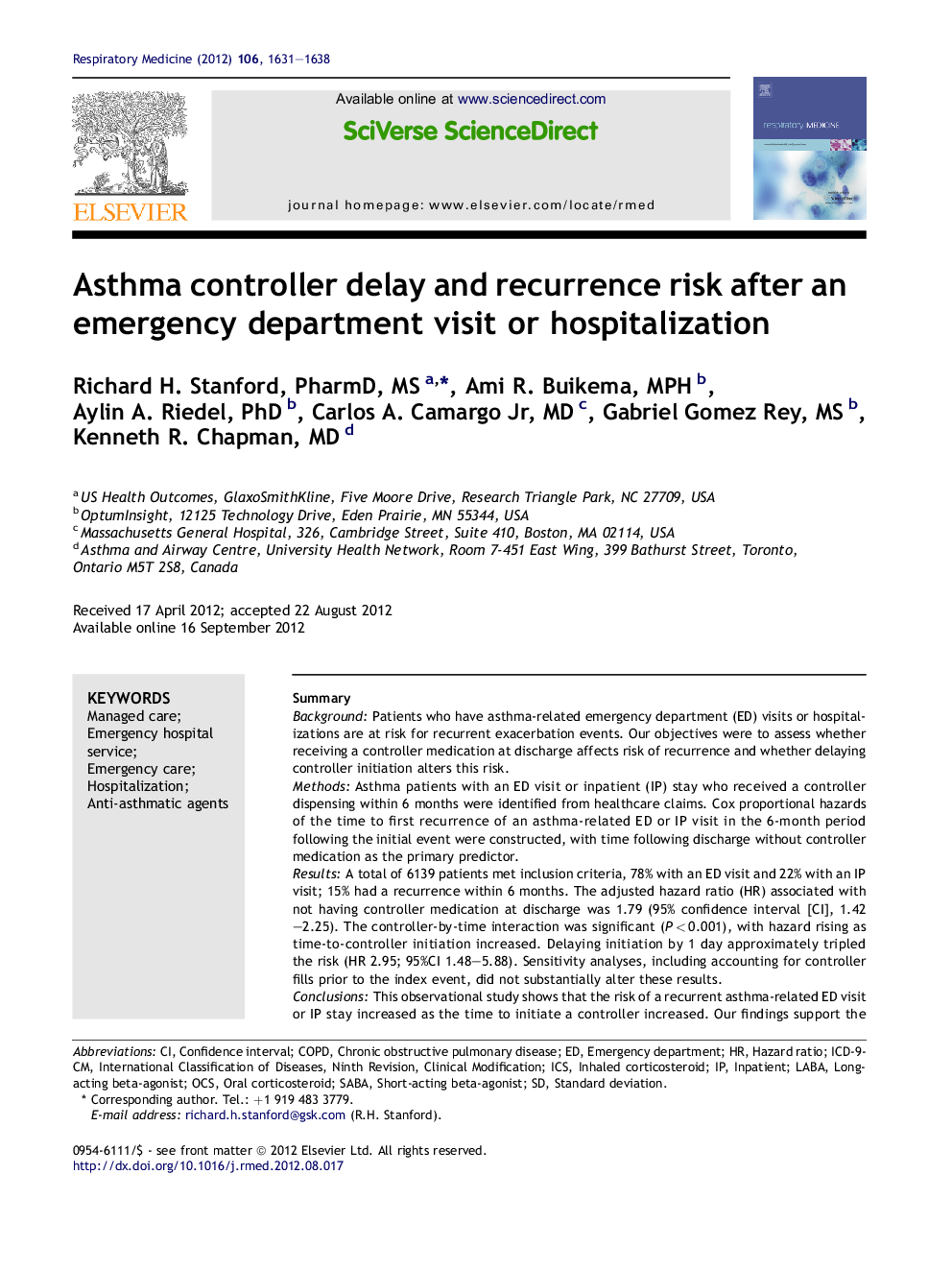| Article ID | Journal | Published Year | Pages | File Type |
|---|---|---|---|---|
| 4210208 | Respiratory Medicine | 2012 | 8 Pages |
SummaryBackgroundPatients who have asthma-related emergency department (ED) visits or hospitalizations are at risk for recurrent exacerbation events. Our objectives were to assess whether receiving a controller medication at discharge affects risk of recurrence and whether delaying controller initiation alters this risk.MethodsAsthma patients with an ED visit or inpatient (IP) stay who received a controller dispensing within 6 months were identified from healthcare claims. Cox proportional hazards of the time to first recurrence of an asthma-related ED or IP visit in the 6-month period following the initial event were constructed, with time following discharge without controller medication as the primary predictor.ResultsA total of 6139 patients met inclusion criteria, 78% with an ED visit and 22% with an IP visit; 15% had a recurrence within 6 months. The adjusted hazard ratio (HR) associated with not having controller medication at discharge was 1.79 (95% confidence interval [CI], 1.42–2.25). The controller-by-time interaction was significant (P < 0.001), with hazard rising as time-to-controller initiation increased. Delaying initiation by 1 day approximately tripled the risk (HR 2.95; 95%CI 1.48–5.88). Sensitivity analyses, including accounting for controller fills prior to the index event, did not substantially alter these results.ConclusionsThis observational study shows that the risk of a recurrent asthma-related ED visit or IP stay increased as the time to initiate a controller increased. Our findings support the importance of early controller initiation following an asthma-related ED or IP visit in reducing risk of recurrence.
